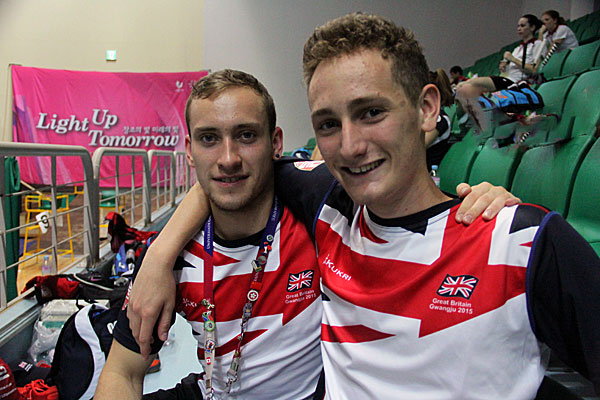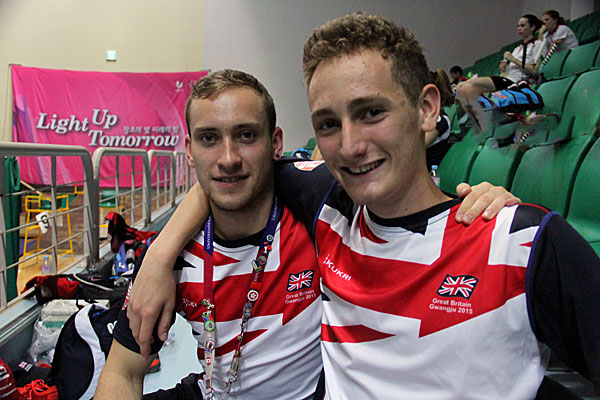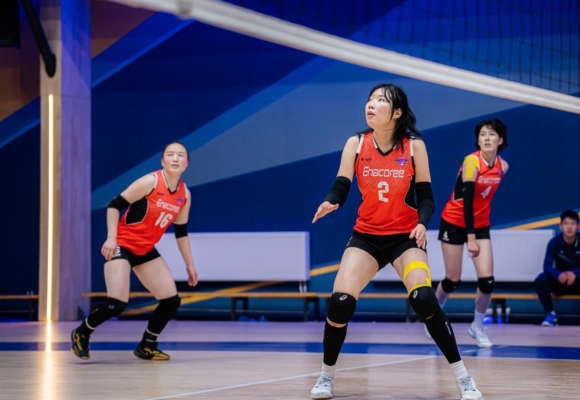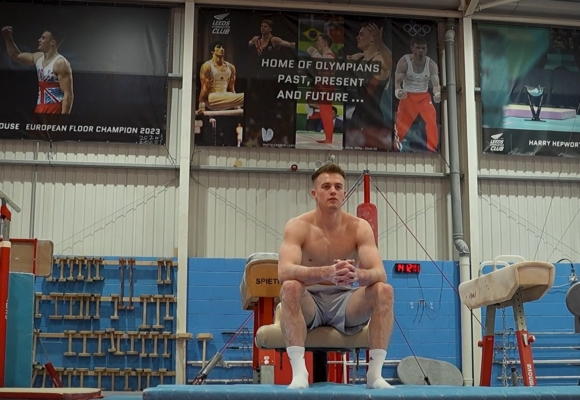
GWANGJU – Racquet speed; lightning. Agility and reflexes are the core to badminton play, and when it comes to teamwork, partner chemistry is absolutely crucial.
Angus Pedersen, from the University of Bath in England, says months of training on top of natural skills is required to be able to succeed in badminton.
“It’s a combination of both; coaches just hit shuttles at you repetitively. It takes time getting used to reacting having short swings, if your swing is too big, the shot’s already gone past you. The top Korean players have a racquet swing that’s practically nothing…it’s all about the technique.”
Such technical shots require finger squeezing movements rather than a full blooded jab at the shuttlecock. Pedersen says it becomes an extension of the arm, while teammate Matthew Carder likens it to changing sports, and upon return finding the original one alien.
“If you play tennis for a week or two and then go back to playing badminton, you struggle to hit cleanly because you’re so used to a tennis racquet. Once you’re accustomed to it it’s a lot easier.”
Doubles matches create the fastest dynamic on court, and Pedersen says having a good playing relationship with your partner creates a successful team.
“When you’re playing at this kind of standard, you have to know who’s going for the shot. Different pairings have different ideas, there’s a lot of debate in badminton, and it’s purely down to what you do as a pair.”
The University of Bath has a setup that allows for a large squad to be able to not only train, but do it under the auspices of Peter Bush, who oversees up to 50 squad members, says Pedersen.
“Pete’s target is to get BUCS points for the university. There’s sessions every day, and you can train twice a week or as much as possible, depending on your level. It’s perfect for me because I can always get at least one session in.”
The Universiade is the pinnacle, says Pedersen, who was happy to be selected for the side.
“Seeing the standard of players, it’s inspiring to go back home in summer, train hard and see what you want to achieve.”
Davis Harrigan (AUS), FISU Young Reporter



